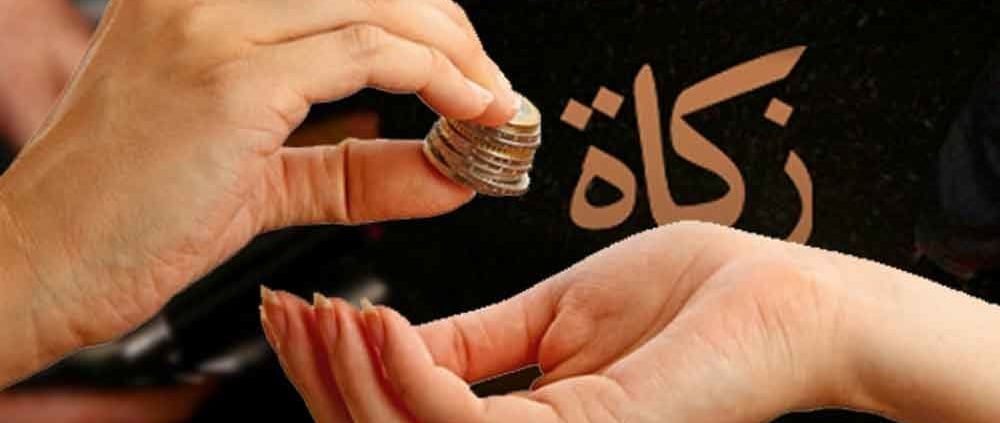أَلَا بِذِكْرِ اللَّهِ تَطْمَئِنُّ الْقُلُوبُ
Zakat and its benefits towards society
"Discover the profound impact of **Zakat**, one of Islam’s Five Pillars, in this detailed article. Learn how this obligatory charity helps eradicate poverty, promote economic stability, support education and healthcare, and foster social harmony. Explore the spiritual and societal benefits of Zakat and how it serves as a powerful tool for economic justice and community welfare. A must-read for those looking to understand the true essence and significance of Zakat in transforming lives."
Noor Academy Pakistan
3/4/20254 min read


Zakat and Its Benefits Towards Society
Introduction
Zakat is one of the Five Pillars of Islam and a fundamental act of worship that embodies the spirit of social justice, charity, and economic equality. It is an obligatory form of almsgiving that requires financially capable Muslims to donate a specific portion of their wealth to those in need. More than just a charitable act, Zakat serves as a powerful tool for uplifting society, eradicating poverty, and fostering economic stability. In this article, we will explore the concept of Zakat, its significance in Islam, and the profound benefits it brings to individuals and society as a whole.
The Meaning and Significance of Zakat
The word Zakat comes from the Arabic root meaning “purification” and “growth.” It signifies the purification of one’s wealth and soul by sharing with those who are less fortunate. In Islam, Zakat is not merely a voluntary act of kindness but a divine obligation upon Muslims who possess wealth above a certain threshold (Nisab). The Quran repeatedly emphasizes the importance of Zakat, highlighting its role in fostering social justice and economic equity.
Allah says in the Quran:
"Take, [O Muhammad], from their wealth a charity by which you purify them and cause them increase and invoke [Allah's blessings] upon them. Indeed, your invocations are reassurance for them. And Allah is Hearing and Knowing." (Surah At-Tawbah 9:103)
This verse underscores how Zakat purifies wealth and increases its blessings. It is a duty that strengthens the social fabric by redistributing resources and ensuring that no member of society is left struggling.
The Rules of Zakat
Zakat is obligatory for all Muslims who meet the required threshold (Nisab), which is equivalent to 2.5% of their savings and assets after fulfilling their basic needs. The recipients of Zakat are clearly outlined in the Quran:
"Zakat expenditures are only for the poor, the needy, those employed to collect it, those whose hearts are to be reconciled, for freeing slaves, for those in debt, for the cause of Allah, and for the stranded traveler—an obligation from Allah. And Allah is Knowing and Wise." (Surah At-Tawbah 9:60)
The eight categories of Zakat recipients ensure that the funds are directed toward the most vulnerable and deserving individuals.
The Benefits of Zakat Towards Society
1. Eradicating Poverty and Reducing Wealth Inequality
One of the primary objectives of Zakat is to alleviate poverty by providing financial assistance to those in need. By redistributing wealth, Zakat bridges the gap between the rich and the poor, ensuring a fairer distribution of resources. It helps uplift individuals from extreme poverty by providing them with financial support for basic needs such as food, shelter, healthcare, and education.
2. Encouraging Social Solidarity and Compassion
Zakat fosters a sense of community and social responsibility. It reminds the wealthy that their success is a trust from Allah, and they have a duty to support their less fortunate brothers and sisters. By giving Zakat, Muslims develop a sense of compassion, humility, and gratitude, strengthening bonds within society.
3. Promoting Economic Growth and Stability
When wealth circulates within society through Zakat, it stimulates economic activity. Those who receive Zakat funds can use them to start small businesses, acquire necessary skills, or invest in their education. This creates employment opportunities, boosts productivity, and fosters economic self-sufficiency.
4. Purifying Wealth and Preventing Hoarding
Islam discourages the hoarding of wealth, as it leads to economic stagnation and social disparity. Zakat ensures that wealth is actively used to benefit society. By contributing a portion of their wealth, Muslims purify their earnings, remove greed from their hearts, and promote a fair economic system where resources are utilized for the common good.
5. Providing Relief in Times of Crisis
Natural disasters, wars, and humanitarian crises often leave many people in dire need of assistance. Zakat serves as an essential means of providing aid during such emergencies. Islamic charities and organizations use Zakat funds to support victims of disasters, refugees, and those affected by unforeseen circumstances, ensuring that help reaches those who need it the most.
6. Supporting Education and Healthcare
Education and healthcare are critical for societal development. Many Zakat funds are allocated to building schools, providing scholarships, and supporting medical facilities for underprivileged communities. By investing in education and healthcare, Zakat contributes to long-term societal progress, empowering individuals to become self-reliant and productive members of society.
7. Reducing Crime and Social Unrest
Poverty and financial disparity often lead to crime, theft, and social unrest. When individuals struggle to meet their basic needs, they may resort to unlawful means to survive. Zakat addresses these issues by ensuring that the needy receive sufficient support, reducing the likelihood of social problems caused by economic desperation.
8. Strengthening Faith and Spiritual Growth
Giving Zakat is not just a financial obligation; it is a means of spiritual purification and personal development. It reminds Muslims of the transient nature of wealth and the importance of prioritizing the needs of others. By fulfilling their duty to pay Zakat, believers strengthen their faith, increase their reliance on Allah, and develop a greater appreciation for their blessings.
Zakat in Modern Society
In contemporary society, the institution of Zakat is administered through various organizations, mosques, and charitable foundations. Many Muslim-majority countries have formalized Zakat collection and distribution systems, ensuring that funds are efficiently utilized to address societal needs. Technology has also played a significant role in modernizing Zakat, allowing people to calculate, pay, and distribute their Zakat online through reliable Islamic charities.
Governments and NGOs have recognized the effectiveness of Zakat in addressing social issues, with some non-Muslim countries adopting similar social welfare programs inspired by the principles of Zakat. It continues to be a powerful force for positive change, demonstrating the timeless relevance of Islamic teachings in promoting economic and social justice.
Conclusion
Zakat is a divine system designed to create a balanced and just society. It plays a crucial role in eradicating poverty, promoting economic stability, and fostering compassion among individuals. By fulfilling the obligation of Zakat, Muslims not only purify their wealth and strengthen their faith but also contribute to building a more equitable and prosperous society. The impact of Zakat extends beyond financial aid—it uplifts communities, supports education and healthcare, and provides relief in times of crisis. In a world where economic inequality remains a pressing issue, the principles of Zakat serve as a model for sustainable development and social welfare. By embracing the spirit of Zakat, we can work towards a world where no one is left behind, and everyone has the opportunity to thrive.
#Zakat #IslamicCharity #GivingBack #SocialJustice #PovertyRelief #EconomicStability #IslamicFinance #CharityInIslam #CommunityWelfare #HelpingTheNeedy #FaithInAction #MuslimObligations #ZakatBenefits #SpiritualGrowth #PurifyingWealth
Online Education with Ease
Empowering learners through online Islamic studies and Quran.
Contact us.
Whatsapp /Call : +92-346-1870400
Noor Academy Pakistan © 2025. All rights reserved.
Email : nooracademy.pk@gmail.com


